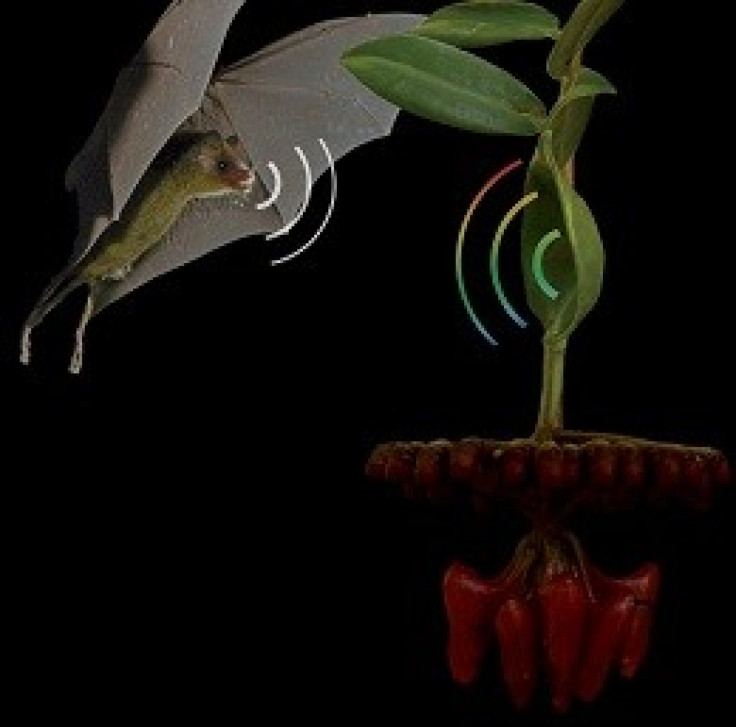Talking Plant with 'Echo Beacon' Attracts Bat Pollinators: Study

A newly discovered rainforest plant has evolved dish-shaped leaves that serve as an echo beacon for bat pollination, according to a study published in Science.
The research team, led by biologists Ralph Simon and Marc W. Holderied, found that the rainforest vine Marcgravia evenia was receiving an increased amount of pollination by way of these echo beacons.
During the study, nectar-feeding bats, Glossophaga soricina, were trained to locate feeders within an artificial foliage background. Flat leaves, dish-shaped leaves and stand-alone feeders were presented to the bats, which produced sonar-like sounds to locate nectar.
Sounds that bounced back to the bats resulted in multiple visits to pollinate the same plants, researchers found. In addition, search times were reduced by almost half, from 23 seconds down to 12 seconds, according to the study.
"This echo beacon has benefits for the both the plant and the bats. On one hand, it increases the foraging efficiency of nectar-feeding bats, which is of particular importance as they have to pay hundreds of visits to flowers each night to fulfill their energy needs. On the other hand, the M. evenia vine occurs in such low abundance that it requires highly mobile pollinators," Holderied said in a press release Thursday.
Until now, most pollination studies have been performed on plants that rely on bright colors to attract bees and birds. But most of these plants have flat-shaped leaves.
Some highlights from the study:
The study was conducted in the southeastern region of Cuba, where the rainforest vine grows.
Bats took the longest to locate nectar from stand-alone feeders, compared to the feeders with flat leaves and feeders with dish-shaped leaves.
The artificial foliage contained 64 feeder positions.
Researchers found that nectar-feeding bats can recognize the same sound from any direction, if produced from an echo beacon.
© Copyright IBTimes 2024. All rights reserved.











